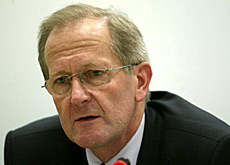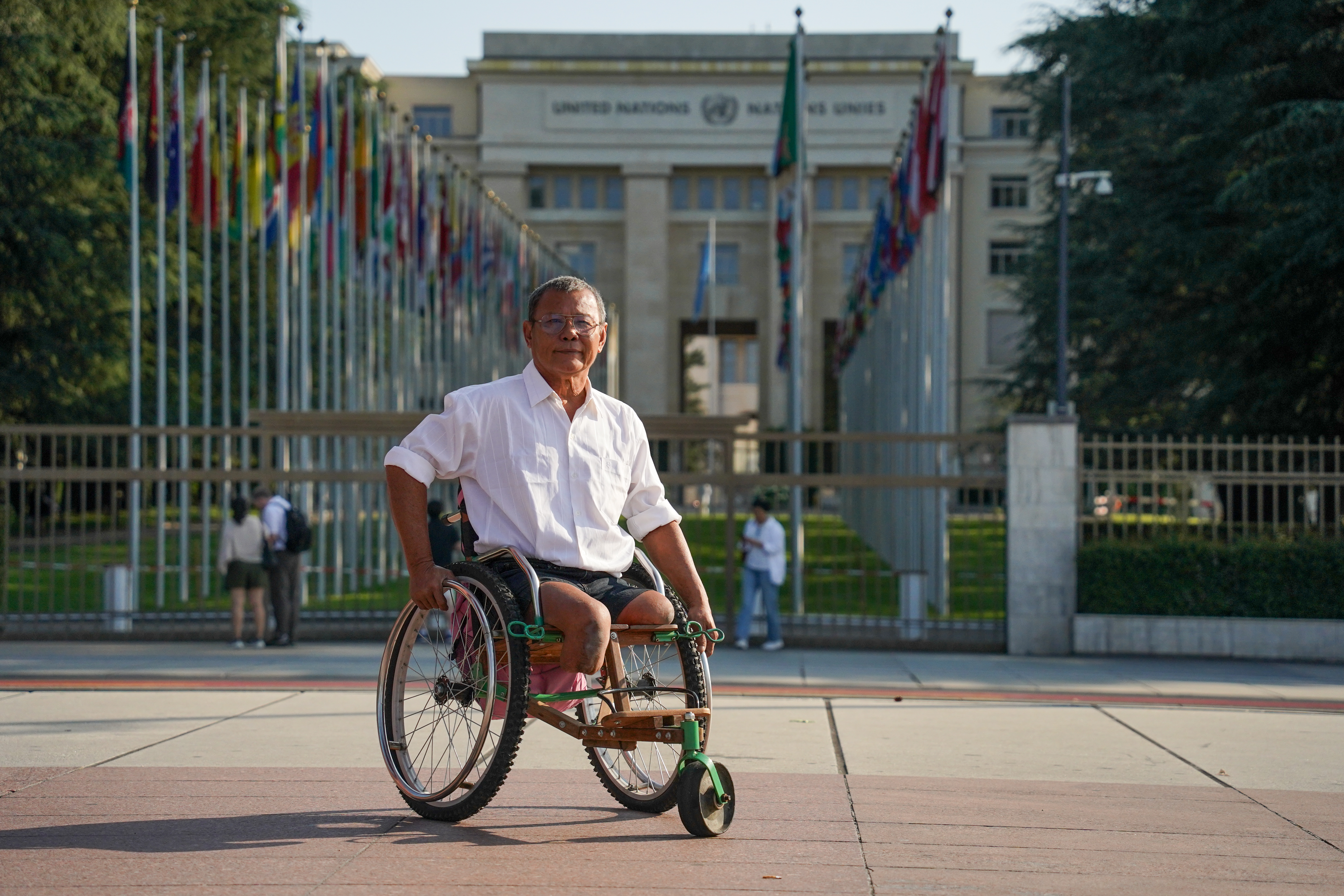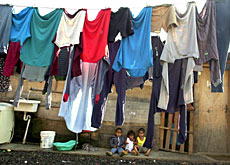
Debt cancellation proves a step too far

International Monetary Fund (IMF) member states - including Switzerland - have stopped short of cancelling debts owed by the world's poorest countries.
Swiss ministers attending the annual meetings of the IMF and World Bank in Washington said forgiving debt would not solve the real problems.
Switzerland has been a member of the IMF and the World Bank since 1992, representing seven poorer countries and holding a seat on the 24-member board.
Government ministers and central bank governors attended weekend steering committee meetings of the two lending agencies before heading into a session involving all 184 member nations on Sunday, the final day of talks.
They talked about the debt facing Iraq and 40 of the world’s poorest countries, mostly in Africa, and the economic impact of high oil prices.
But they were unable to resolve differences over how to address the problem of debt.
Member states voted to extend an ongoing debt relief programme by two years, but proposals by some governments and non-governmental organisations for further debt relief, or for complete cancellation, were defeated.
Reservations
The Swiss delegation included Finance Minister Hans-Rudolf Merz, Economics Minister Joseph Deiss and Swiss National Bank chairman Jean-Pierre Roth. Both ministers said they could not support cancelling the debt of the poorest nations.
Merz told swissinfo that he remained open to ideas, but said total cancellation was “not a perfect and final solution”.
“It must be part of a general strategy that is not yet in place, to wean dependent countries from development aid,” he said.
Merz added that cancelling debt for the poorest nations “would be an injustice” to other poor countries which control debt through rigorous economic policies.
Deiss said debt relief programmes had already led to progress in at least 20 countries.
IMF gold
Britain had suggested that the IMF revalue its gold reserves to help pay for the cost of forgiving poor countries’ debt.
The IMF’s 3,217 tons of gold are currently valued at approximately SFr10.6 billion ($8.5 billion).
The IMF confirmed that the figure was a vast underestimate, and that at today’s prices its gold was actually worth closer to SFr53 billion.
Britain argued that revaluing the gold would “create” sufficient reserves to cancel much of the debt without draining other sources.
But Merz said the idea was discussed only “briefly” at the weekend meeting.
“It doesn’t have majority support at this point. And after all, the IMF reserves are lower than Switzerland’s,” he said.
Sceptical
Deiss said he was sceptical about some proposals tabled at the meeting.
He added that cancellation or further reduction of debt would compromise development aid, since the countries financing it would have less money for new projects.
Switzerland has given SFr500 million in bilateral aid since 1991, and SFr200 million to the IMF and World Bank debt relief programme since 1996.
Deiss made it clear he was against the use of IMF reserves to cancel debt.
“The World Bank is a bank and if its assistance is transformed into a gift, it becomes a charitable institution.”
Disappointment
While 300 people staged a demonstration outside the IMF headquarters against the war in Iraq, the United States tried to rally support for wiping out up to 90 per cent of the country’s $120 billion in foreign debt.
But France and Germany said they were willing to provide only 50 per cent debt relief for Iraq this year.
Some private debt relief groups voiced disappointment at the lack of progress on cancellation of poor country debt at the meeting, but expressed hope that future agreement could be reached.
swissinfo, Marie-Christine Bonzom in Washington
The finance and economics ministers, Hans-Rudolf Merz and Joseph Deiss, represented Switzerland at the IMF and World Bank meetings in Washington.
Member states voted to extend a debt relief programme for two years.
Switzerland has contributed SFr200 million to the IMF and World Bank’s debt relief programme since 1996.
It has also contributed SFr500 million to poor countries’ debt relief since 1991.
Switzerland has been a member of the IMF and World Bank since 1992.
It represents seven countries at those institutions – Poland, Serbia and Montenegro, Azerbaijan, Kyrgyzstan, Uzbekistan, Tajikistan and Turkmenistan.
Switzerland is one of 24 members on the board of the IMF and the World Bank.

In compliance with the JTI standards
More: SWI swissinfo.ch certified by the Journalism Trust Initiative






































You can find an overview of ongoing debates with our journalists here . Please join us!
If you want to start a conversation about a topic raised in this article or want to report factual errors, email us at english@swissinfo.ch.